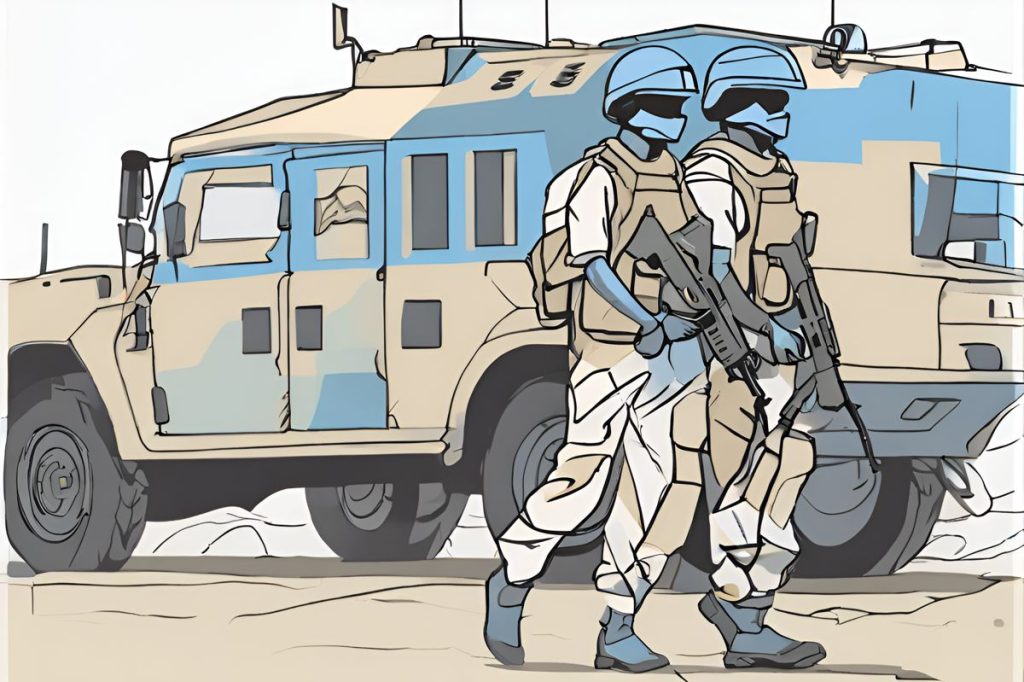Turkish Cypriot leader Ersin Tatar accuses Unficyp of favoritism towards Greek Cypriots, demanding impartiality in their peacekeeping role. He calls for a Status of Forces Agreement for official recognition to address the perceived bias.
What is the Turkish Cypriot leader’s accusation against Unficyp?
Turkish Cypriot leader Ersin Tatar accused Unficyp of bias, alleging it favors Greek Cypriots, especially evident in halted projects and general operations. He demands a Status of Forces Agreement for official recognition and impartiality in their peacekeeping role.
Allegations of Unfairness
Turkish Cypriot leader Ersin Tatar has recently criticized the United Nations Peacekeeping Force in Cyprus (Unficyp), claiming that it has been unjust towards the Turkish Cypriot community. According to Tatar, Unficyp has shown a biased stance, allegedly under the influence of Greek Cypriots. This allegation comes just before the 60th anniversary of the establishment of Unficyp, a significant milestone that marks the enduring presence of the UN peacekeeping force in the region.
Tatar’s remarks were made public during an interview with Anadolu Agency. He expressed discontent with the operations of Unficyp soldiers and suggested that their actions have not been impartial. The Turkish Cypriot leader pointed out a specific incident concerning a road construction project through the buffer zone, which he says was halted due to Greek influence, as an example of the bias he perceives.
Calls for Official Recognition
Ersin Tatar also reiterated his longstanding demand for Unficyp to enter into a Status of Forces Agreement with the authorities in the north, implying the official recognition of the Turkish Republic of Northern Cyprus (TRNC) by the UN force. He insists that such an agreement is necessary for Unficyp to efficiently carry out its peacekeeping duties within the territory claimed by the TRNC.
The situation in Cyprus remains one of the most protracted political issues within the UN’s agenda. Unficyp was originally established to prevent a recurrence of fighting and to contribute to maintaining law and order and a return to normal conditions. However, the continued division of the island is a testament to the complex political challenges that have prevented a lasting solution.
Buffer Zone Tensions
The presence of Unficyp in Cyprus has been a topic of contention, as the buffer zone, also known as the Green Line, remains a symbol of the island’s divided status. The Green Line extends over 180 kilometers and separates the Greek Cypriot-controlled south from the Turkish Cypriot-controlled north. Despite the UN’s efforts to maintain peace and stability in the region, incidents along the buffer zone are not uncommon, reflecting the underlying tensions between the two communities.
Over the years, Unficyp has evolved, adapting to the changing landscape and needs of the Cypriot population. The force has shifted from its initial size of 6,000 military personnel and police officers to a more streamlined team that includes both military and civilian components. As part of their mission, UN peacekeepers continue to play a vital role in facilitating dialogue and building confidence between the two sides.
Six Decades of Deployment
As Unficyp commemorates 60 years of deployment in Cyprus, it is clear that the UN’s role on the island is as crucial as ever. The force has witnessed numerous changes throughout the decades, adapting its approach and operations to the evolving dynamics of the Cyprus conflict. Despite the challenges, the peacekeepers’ commitment to supporting the Cypriots’ pursuit of reconciliation and peace remains steadfast.
The words of Turkish Cypriot leader Ersin Tatar highlight the ongoing discussions and viewpoints that influence the peace process. These perspectives, whether from the north or the south of the island, contribute to the ongoing debate on the future of Cyprus and the role international actors like Unficyp should play in achieving a comprehensive and lasting settlement.
What is the Turkish Cypriot leader’s accusation against Unficyp?
Turkish Cypriot leader Ersin Tatar accused Unficyp of bias, alleging it favors Greek Cypriots, especially evident in halted projects and general operations. He demands a Status of Forces Agreement for official recognition and impartiality in their peacekeeping role.
Why does Ersin Tatar want a Status of Forces Agreement with Unficyp?
Ersin Tatar believes that entering into a Status of Forces Agreement with Unficyp would lead to official recognition of the Turkish Republic of Northern Cyprus (TRNC) by the UN force. He sees this agreement as necessary for Unficyp to effectively carry out its peacekeeping duties within the TRNC’s territory.
What tensions exist along the buffer zone in Cyprus?
The buffer zone, also known as the Green Line, separates the Greek Cypriot-controlled south from the Turkish Cypriot-controlled north. Incidents along the buffer zone are not uncommon and reflect the underlying tensions between the two communities despite the efforts of Unficyp to maintain peace and stability in the region.
How long has Unficyp been present in Cyprus?
Unficyp has been deployed in Cyprus for 60 years, marking a significant milestone in its peacekeeping mission on the island. Over the decades, the force has adapted to the changing dynamics of the Cyprus conflict and continues to play a vital role in facilitating dialogue and building confidence between the two sides.

